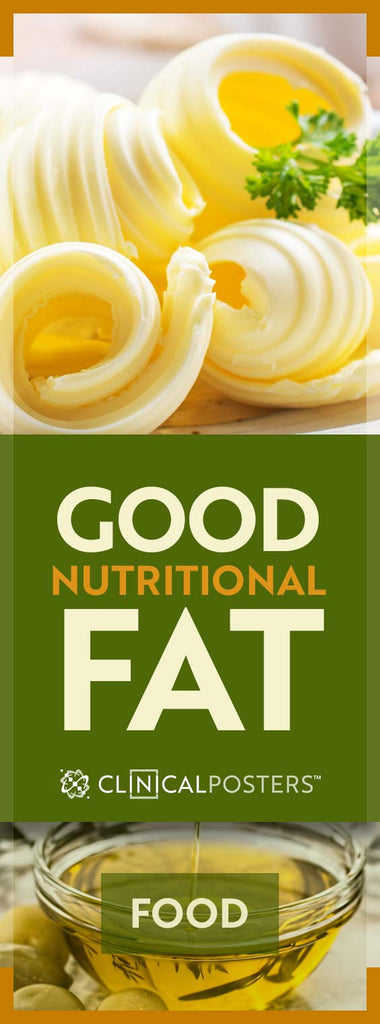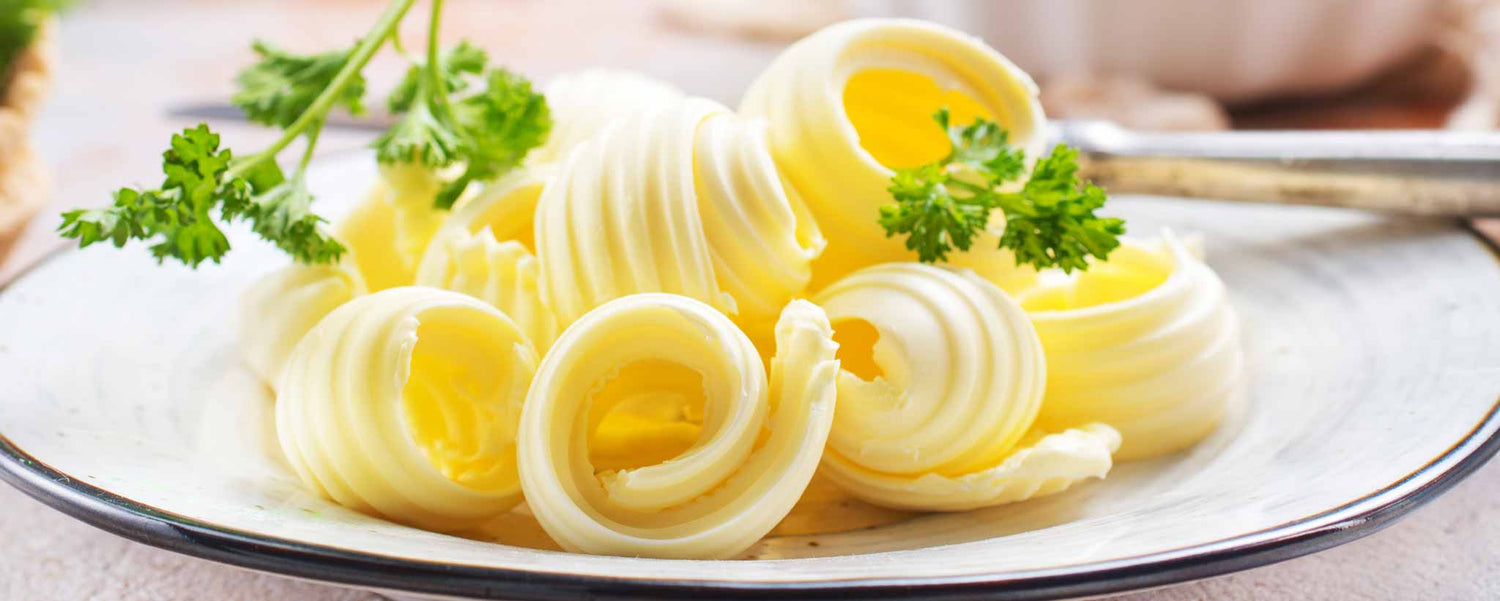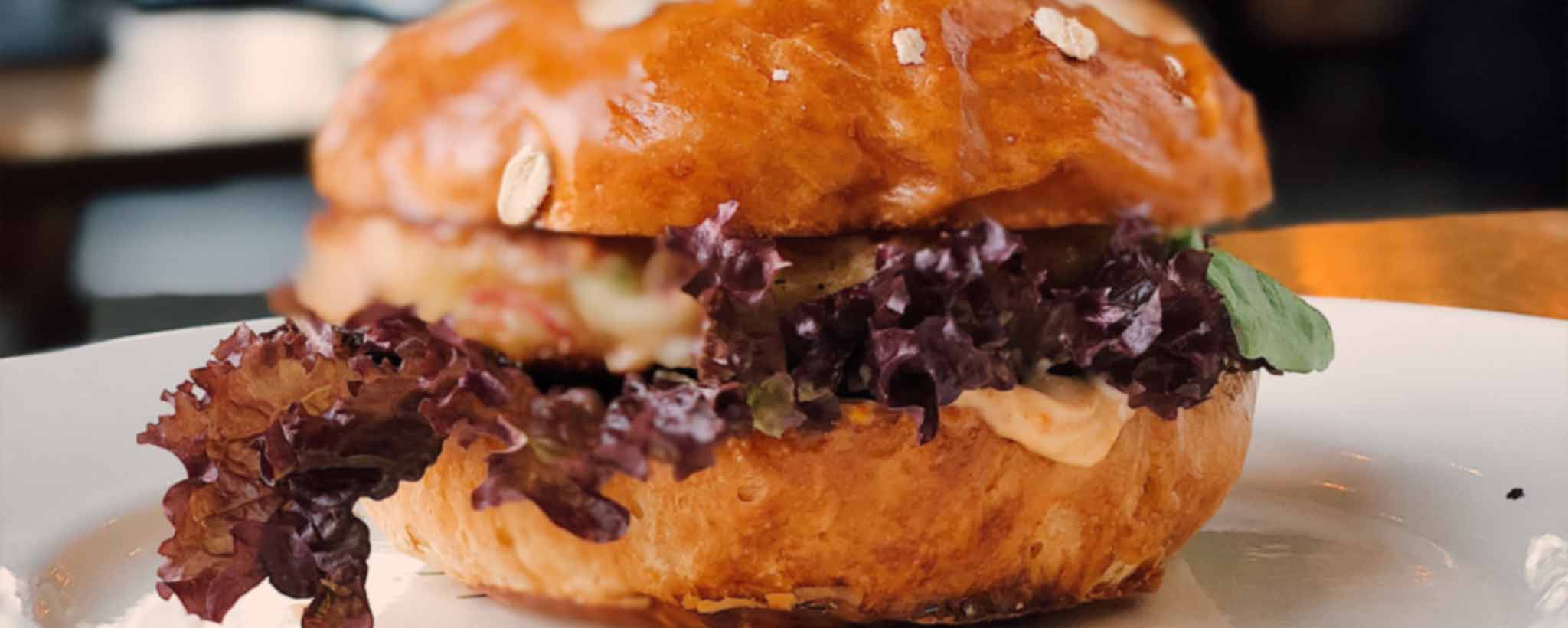Chefs have a different view of fat than dietitians in general. Instead of extreme fat avoidance, it is wise to practice more responsible fat consumption.
Not All Fat Is Bad
Chefs have a different view of fat than dietitians in general. In culinary classes, students learn how butter adds richness and flavor. Desserts beg for various creams. Butchers serve mouth-watering, tender steaks with sufficient marbling. Ground lean meats benefit from the addition of complementary fat. The two main ingredients in salad dressing are acid (vinegar, lemon juice) and fat (olive, safflower, sesame oils).
Not just for flavor, your body needs dietary fat. According to the American Heart Association, ‘dietary fats give your body energy and support cell growth. They also help protect your organs and help keep your body warm. Fats allow your body to absorb some nutrients and produce important hormones, too.’ It is important to recognize that there are four main dietary fats: [1]
- Saturated fats
- Trans fats
- Monounsaturated fats
- Polyunsaturated fats
The American Heart Association recommends aiming for a dietary pattern that achieves 5% to 6% of calories from saturated fat (butter, cream, cheese, meats). Monounsaturated fats are plant-based oils like olive, safflower, and sesame. Polyunsaturated fats like soybean oil, corn oil, and safflower oil can help reduce bad cholesterol levels in your blood which can lower your risk of heart disease and stroke. [1]

This high-protein meal includes several saturated fats. Limit the amount you consume.
The digestive systems of some animals produce naturally occurring trans fats. An industrial process that adds hydrogen to liquid vegetable oils makes them more solid. This produces artificial trans fats (or trans fatty acids). Look for the words “partially hydrogenated oils” on processed food labeling. The U.S. Food and Drug Administration (FDA) warns that partially hydrogenated oils are no longer Generally Recognized as Safe (GRAS) in human food. [2]
Here are some considerations to the butter-versus-margarine debate: Pros: Margarine is much lower in saturated fat than butter, and it is made from vegetable oils, so it contains unsaturated “good” fats—polyunsaturated and monounsaturated fats and no cholesterol. Cons: Although it is lower in saturated fat, stick margarine still contains about the same amount of total fat and calories as butter. [3–5]

We should limit some fats while eliminating artificial trans fats. Natural fats, in moderation, are essential to good health. People who either have a gallbladder that is malfunctioning or is no longer present cannot process fats well. The liver tries its best to substitute for the function of the deficient organ. Too much fat is rejected—sent back up from where it came.
In a health maintenance class moderated by a registered dietitian, one member bemoaned the occasional craving for rich forbidden food post-cholecystectomy. This is when things got weird. The nutritionist probed about deep-seated childhood issues of trying to please her father as the root cause of such cravings.
Interjecting an alternative rationale, I asked, “Don’t our bodies require a measure of fat?” After receiving an affirmative response from the nutritionist, I posed a rhetorical question: “Is it then natural to crave fat periodically (with no relation to the psychological issues)?”
A main problem with many diets is their extreme abstinence from something—often fat. Our bodies need a good balance. The 2015–2020 Dietary Guidelines for Americans [5] are:
- Carbohydrates: 45–65% of calories
- Fat: 25–35% of calories
- Protein: 10–30% of calories
Carbohydrates should be as complex (natural and fibrous) as possible. Think of celery as opposed to potato chips. Instead of extreme fat avoidance, it is wise to practice more responsible fat consumption. Read labels and choose proper fats for good health.
Even while consuming good fats, stay fit with regular exercise. If your gallbladder has been removed (cholecystectomy) or you are lactose intolerant, speak to a registered dietitian about an individual action plan.
To support the writing of useful articles about food, ClinicalPosters sells human anatomy charts, scientific posters, and other products online. You may sponsor specific articles, become a ClinicalNovellas Member, or remit a small donation.
ClinicalPosters sells human anatomy charts, scientific posters, and other products online to offset expense of the writing useful articles about food. Slide extra posters into DeuPair Frames without removing from the wall.
Show your support by donating, shopping for ClinicalPins, becoming a ClinicalNovellas Member, or leaving an encouraging comment to keep the research going.
To support the writing of useful articles about food, ClinicalPosters sells human anatomy charts, scientific posters, and other products online. You may sponsor specific articles or remit a small donation.
ClinicalPosters sells human anatomy charts, scientific posters, and other products online to offset expense of the writing useful articles about food. Slide extra posters into DeuPair Frames without removing from the wall.
ClinicalPosters sells human anatomy charts, scientific posters, and other products online. You may remit a small donation or become a ClinicalNovellas Member.
You can support the writing of useful articles about food by sponsoring specific articles, becoming a ClinicalNovellas Member, or remitting a small donation. Visible content is optimized for device size.






 Romance & Health Intertwine. Fall in love with a captivating romance miniseries that explores the essence of well-being. Become a ClinicalNovellas member for heartwarming tales.
Romance & Health Intertwine. Fall in love with a captivating romance miniseries that explores the essence of well-being. Become a ClinicalNovellas member for heartwarming tales.






